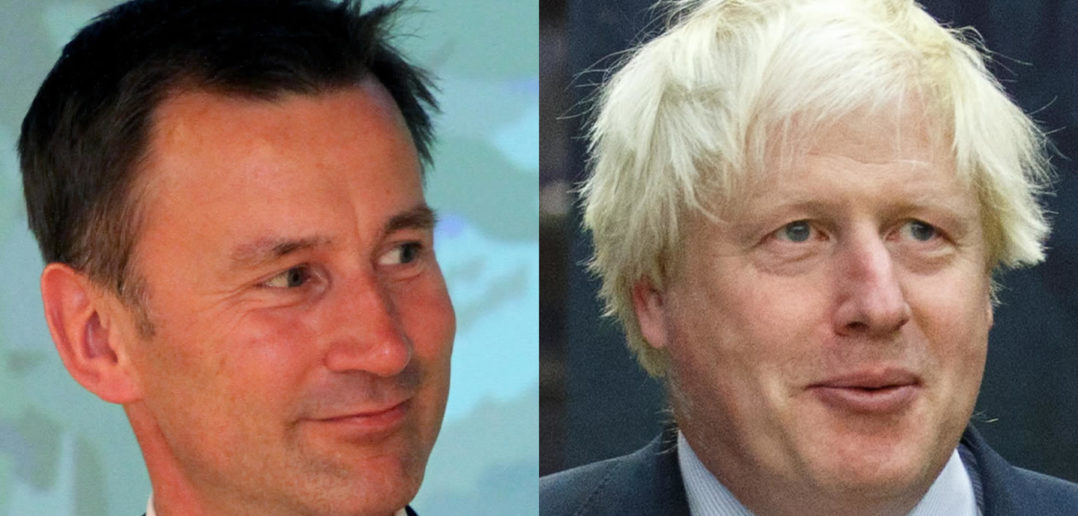As the revolving doors of the cabinet continue to keep ministers in a state of flux, the biggest story of Number 10’s post-Chequers rout was the resignation of arch-Brexiteer and chief political pot-stirrer, Boris Johnson.
His seat at the Foreign Office was filled in short order by Jeremy Hunt, who may well have already proved his suitability for the role by dint of his own political manoeuvres: he has deftly managed to side-step the internecine squabbling that has plagued the inner corridors of government for the last two years, while remaining one of the Prime Minister’s closest allies.
Though his style is predicted to be as different from his predecessor’s as chalk is from cheese, when it comes to substance many are wondering what the appointment will mean for British diplomacy – especially in the Middle East.
Superficially at least, there’s a chasm between Hunt and Johnson. Where Johnson was the capricious maverick – arguably a toxic trait in any diplomat – Hunt is less likely to hit the headlines for ruffling political feathers. He also knows how to stay calm in a storm: his stint at the NHS made him the longest-serving health secretary since the service began and he has survived several crises that would have seen other ministers leave by the back door.
It’s thought that Hunt will take a more conventional approach to foreign policy than Johnson. Indeed, many of his recent statements have carefully toed the diplomatic line; for instance, he’s rebuked Palestinian efforts to change Israel’s policies via the Boycott, Divestment and Sanctions (BDS) movement, while simultaneously expressing criticism of Israeli violations of Palestinian rights.
Israeli-Palestinian tensions continue to simmer
The Israel-Palestine conflict is likely to remain an area of focus, especially in the wake of President Trump’s controversial decision to move the US embassy from Tel Aviv to Jerusalem.
Hunt will be expected to stick to the UK’s long-standing policy of pushing for a negotiated two-state settlement – although the response from the British government to Trump’s decision has so far been somewhat muted, as political priorities are carefully weighed in the balance. While Prime Minister Theresa May cited the development as ‘unhelpful’ to the peace process, the silence from Boris Johnson was deafening: in a speech last December on the subject of Islamic extremism, he completely omitted a passage censuring Washington’s recognition of Jerusalem as Israel’s capital.
Meanwhile, Hunt has tentatively expressed ‘disappointment’ at the relocation, perhaps bearing in mind the need for Britain to strike post-Brexit trade deals with both America and Israel in the near future; a government white paper has already identified Israel as a post-Brexit trade priority.
Strengthening UK ties in the Gulf
Just as critical as strengthening trade relations with Israel, however, will be the cultivation of economic ties with the wealthy Gulf states, notably Qatar. The emirate has already invested heavily in Britain – to the tune of more than £35 billion, with annual bilateral trade valued at more than £5 billion. Only a few months after Theresa May became prime minister, she attended the Gulf Cooperation Council (GCC) meeting in Bahrain, where she spoke of a future partnership with the union’s member states covering security, defence, and trade.
Barely six months later, after the intra-GCC dispute broke out, Boris Johnson flew to Qatar in an effort to help Kuwait and other players mediate an end to the crisis. Though his visit bore little fruit, there is a good chance that Hunt may fare better at mediation attempts. Next week, there may be a first chance to see how he will broach the topic, as the Emir of Qatar visits London to discuss the blockade as well as new trade deals.
A question mark over Syria
Another notoriously complex dossier on Hunt’s desk will be the ongoing crisis in Syria. Though he has barely had time to dive into the matter, he has already been subject to scepticism from political commentators over his willingness to take an adequately hard line with embattled Syrian President Bashar al-Assad.
On one hand, Hunt has repeatedly criticised the Assad regime, most recently condemning his ‘brutal’ campaign to take control of Eastern Ghouta and demanding an end to ‘unprecedented levels of suffering’. Yet by contrast, in 2007 Hunt – together with a number of other British politicians – embarked on a friendly visit to Syria organised by Assad’s father-in-law, Fawaz al-Akhras. Critics say that while the trip was taken more than a decade ago, evidence of mass torture in the region should have already raised major red flags for Hunt.
With little chance that the Syria crisis will be resolved by the end of Hunt’s term, it’s likely that he will maintain standard UK policy in the region, continuing to call for a peaceful resolution while contributing to ad hoc airstrikes against the government. With the US administration becoming increasingly volatile, however, it is an open question how closely Britain will continue to support US strategy in the Middle East.
Business as usual?
Hunt may lack foreign policy experience, but he has proved to be both astute and agile on the political stage, outmanoeuvring his outwardly more ambitious colleagues to bag one of the great offices of state after serving only a dozen years in parliament.
While Johnson courted controversy at every stage, exploiting the cracks in the cabinet for his own political gains, Hunt is expected to carefully measure risk and avoid grand gestures. He will likely recognise that he knows relatively little of the complex issues that govern political policy to date in the Middle East and will take his lead from more experienced advisers – at least until he’s found his feet. He’ll certainly be hoping he can quietly succeed where Johnson noisily failed. But, against a backdrop of political turmoil at home, how long he’ll remain in office is anyone’s guess.




